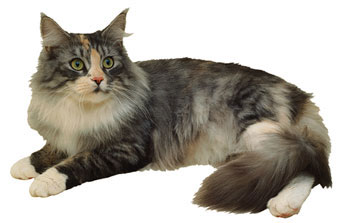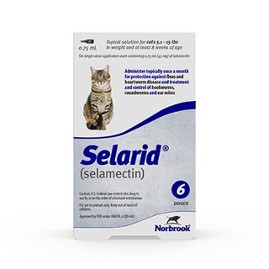
General Care for Cats
Nutrition:
Feeding your cat a balanced diet is essential for its health. Cats are obligate carnivores, meaning they need animal-based protein to thrive.
- Choose high-quality cat food based on their age (kitten, adult, senior) and health needs.
- Fresh water should always be available. Cats can be prone to urinary tract issues, so it's important to monitor their hydration.
Litter Box Maintenance:
Ensure your cat's litter box is clean and placed in a quiet, accessible area. Cats are particular about cleanliness, and a dirty box can lead to inappropriate elimination and behavioral issues.
- Scoop the litter box daily, and change the litter weekly.
Regular Vet Checkups
Routine Exams:
Cats should have regular checkups with their vet to monitor overall health, prevent illness, and catch early signs of disease. Annual or bi-annual visits are recommended.
Vaccinations:
Vaccines are crucial to prevent serious diseases in cats.
- Core vaccines include: Rabies, Feline Herpesvirus, Feline Calicivirus, Feline Panleukopenia (commonly called the FVRCP vaccine).
- Optional vaccines like Feline Leukemia (FeLV)
Parasite Prevention:
- Cats are susceptible to parasites like fleas, ticks, and intestinal worms. Regular treatments for these parasites, either topical or oral, are important.
- Fleas can cause skin issues, and heartworms can lead to severe heart problems. Ensure regular parasite prevention to keep your cat safe.

Grooming
Coat Care
Grooming is an essential part of a cat’s care routine. Cats with long hair need more frequent brushing, while short-haired cats can typically be groomed once a week. Regular brushing prevents matting and reduces shedding.
Cats are generally good at grooming themselves, but assistance from owners can help keep their coats shiny and healthy.
Nail Trimming
Cats’ nails can grow too long and cause injury or damage to furniture. Trimming your cat's nails every few weeks is advisable.
Ear Care
Clean your cat’s ears regularly to avoid infections. Check for signs of discomfort, redness, or a build-up of wax or discharge.
Dental Health
Brushing Teeth
Cats can develop dental disease, leading to pain, bad breath, and tooth loss. Brush your cat's teeth regularly with feline-safe toothpaste and consider providing dental treats or special toys to help keep their teeth clean.
Dental Checkups: Your vet may recommend professional cleanings if your cat shows signs of dental problems, such as red gums or difficulty eating.
Common Cat Health Issues
1. Obesity
Obesity is a common issue in cats, leading to various health problems like diabetes, joint stress, and reduced life expectancy.
Control portion sizes and provide healthy treats. Ensure your cat gets enough physical exercise through play.
If your cat is overweight, consult your vet for a weight management plan.
2. Urinary Tract Issues
Cats are prone to urinary tract problems, including urinary tract infections (UTIs), kidney disease, and bladder stones.
Signs of urinary issues include frequent urination, blood in the urine, straining to urinate, or urinating outside the litter box.
Ensure your cat is drinking enough water, and keep its litter box clean.
3. Parasites
Cats can suffer from external parasites like fleas and ticks or internal parasites such as roundworms, tapeworms, and heartworms.
Fleas can cause itching, hair loss, and even anemia, while heartworms can be fatal if untreated.
Regular veterinary care can help prevent and treat these conditions.
4. Allergies
Cats can develop allergies to certain foods, environmental factors (like pollen), or flea bites.
Symptoms include excessive grooming, scratching, sneezing, and runny eyes.
If you notice these signs, consult your vet for an allergy diagnosis and treatment options.
5. Hyperthyroidism
This condition occurs when the thyroid gland becomes overactive, leading to weight loss, increased appetite, and hyperactivity.
Hyperthyroidism is common in older cats, and your vet will need to run blood tests for diagnosis.
Treatment options include medication, dietary changes, or surgery.
6. Feline Lower Urinary Tract Disease (FLUTD)
This umbrella term refers to several conditions affecting the urinary system in cats. It can cause symptoms like difficulty urinating, blood in the urine, or urinating outside the litter box.
Stress, dehydration, or diet are common triggers.




